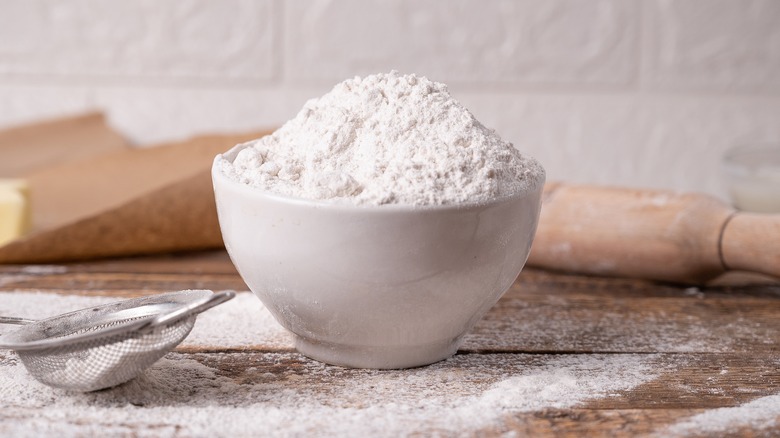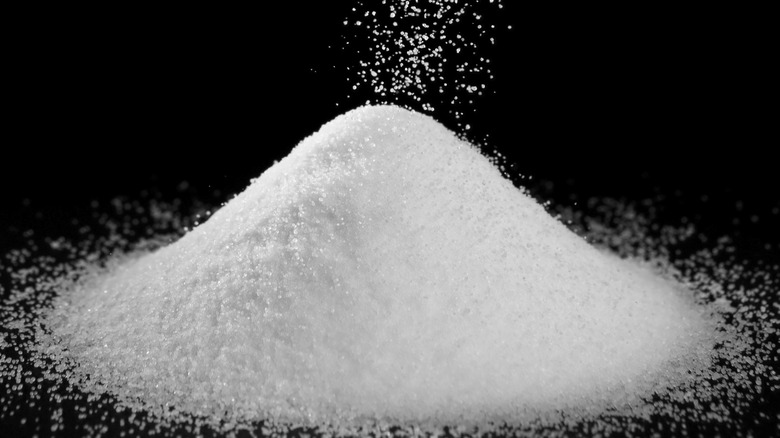The Hero For Cleaning Spilled Oil Is Already In Your Pantry
Few things are more defeating than accidentally dropping a large amount of food or liquid on your kitchen floor or counters. Managing to spill pure cooking oil is one of those few things. Sure, it's no big deal if you're dealing with some minor oil splatter from cooking or a tablespoon-sized spill, but if it's at least a small puddle's worth of oil, you'll likely be scratching your head about how best to clean it. Thankfully, there's no need to panic because the best thing for cleaning spilled oil is probably already in your pantry — you just didn't know it.
Conventional wisdom might say to grab paper towels first, but these will still leave a slick layer of oil after wiping. Absorbent granules like flour and cornstarch are much more effective and will soak up nearly all the oil. Flour and cornstarch work so well because they are largely made up of starches, which easily cling to liquids when they come into contact. Flour has the additional power of wheat gluten, which also clings to and absorbs oil. So the next time you have a big oil spill, cover the site with a handful of flour or cornstarch to fully coat the oil and let it sit for a few minutes to absorb. After that, grab a dustpan and sweep up the oil-soaked granules for clean results.
Other pantry items for cleaning oil spills
In addition to flour and cornstarch, a few other common pantry items can handle tough oil spills. Salt and sodium bicarbonate (also known as baking soda) are members of the same sodium family and have larger granules than flour and cornstarch but can be just as effective at absorbing oil. You might worry there's a risk of your salt or baking soda dissolving in the oil, requiring you to use a large amount to fully clean a spill, but that's not the case. Thankfully, salt compounds do not dissolve in oil, so table salt and baking soda will soak up oil and retain their granular shape, allowing you to sweep up the mess and easily clean the spill.
At this point, you might wonder which group is better for cleaning up oil: starches or salts. The truth is, it depends. Flour and cornstarch are very fine powders, and you might need a vacuum to erase all traces from your floor or counter after the fact. In the case of the salts, they may be easier to sweep up because of the large granules, but unless you have cheap table salt, you might be wasting money by dumping fistfuls of quality stuff onto spilled oil. When you're faced with oil cleanup, assess which pantry item you're most okay with disposing of based on what you have available.

